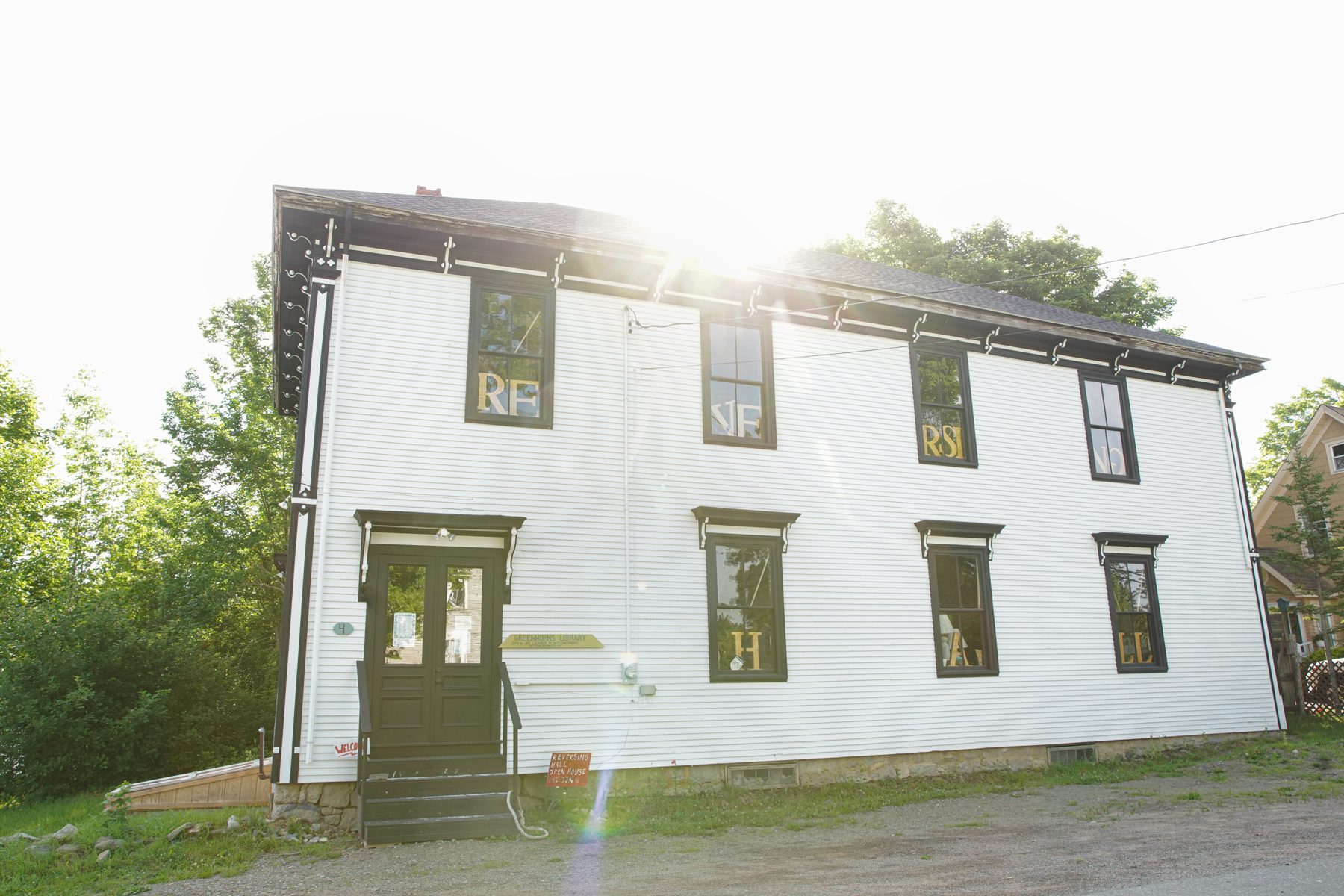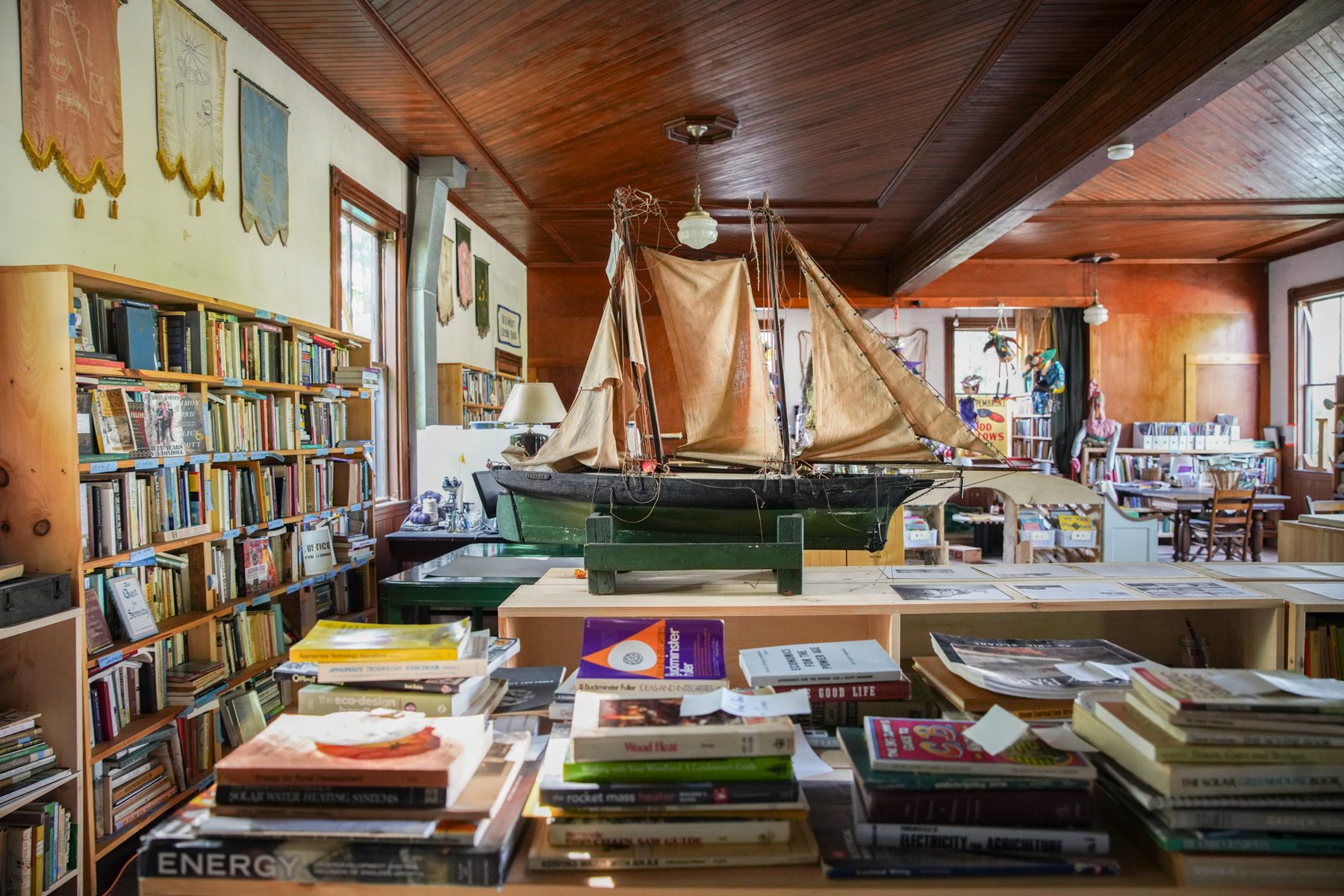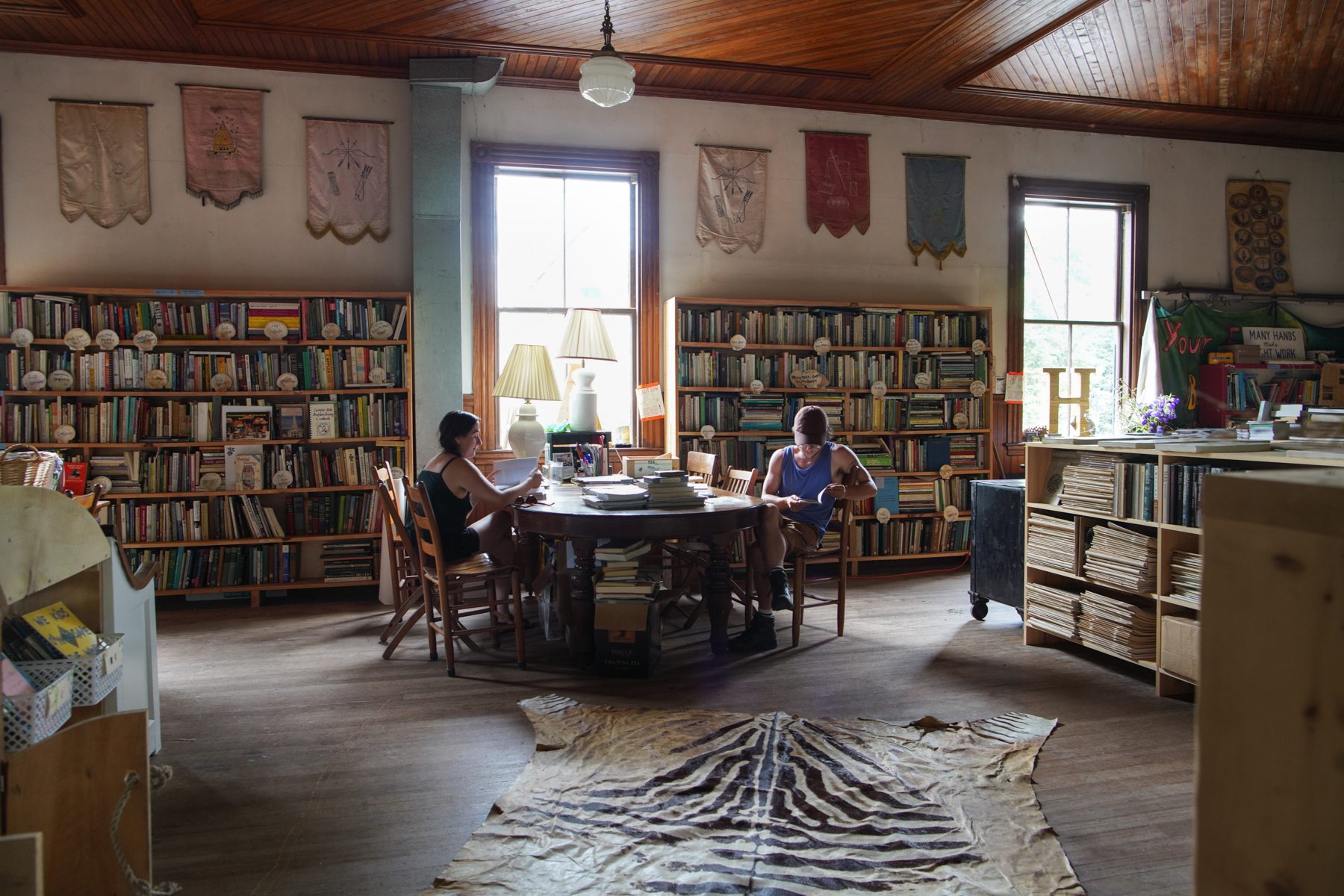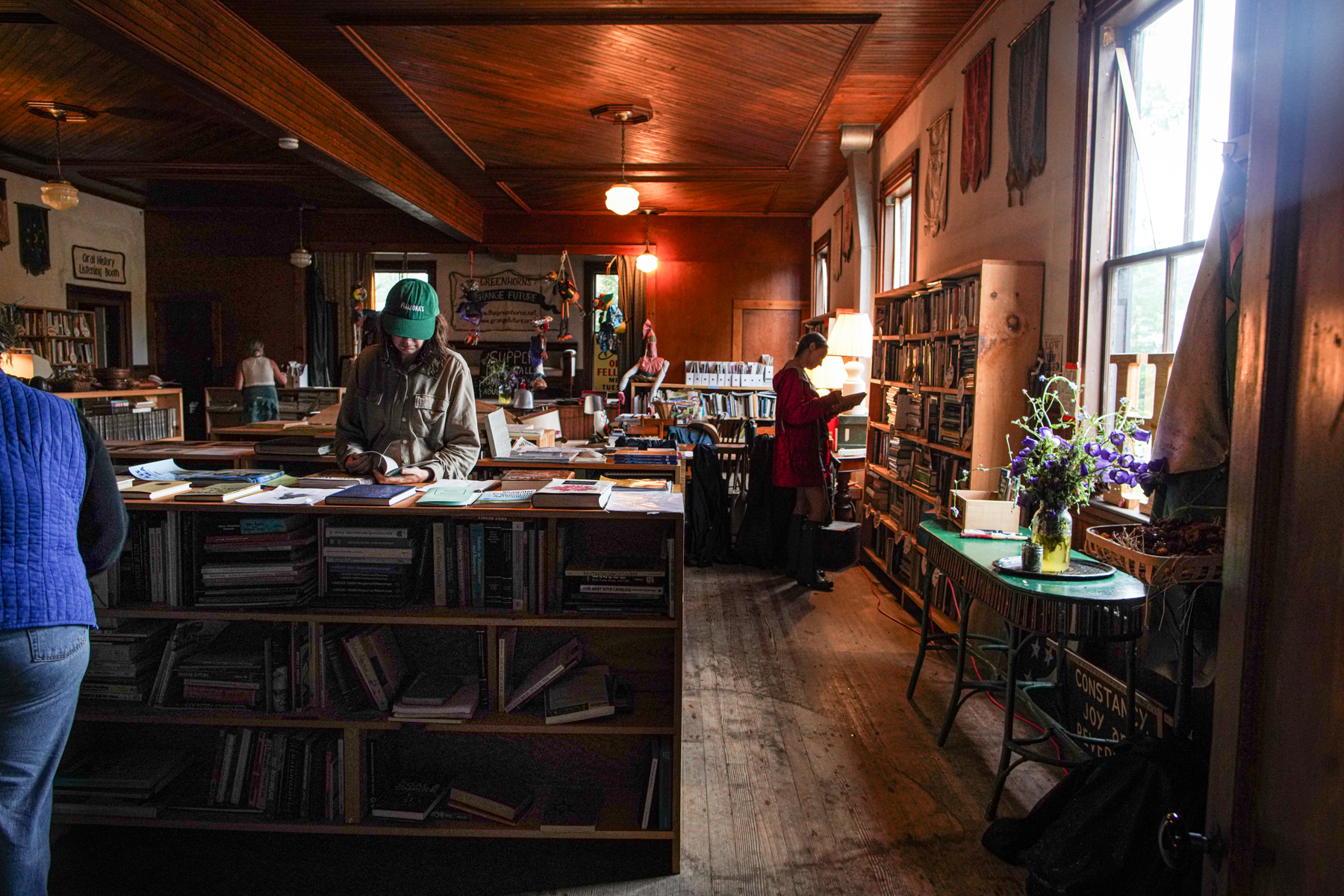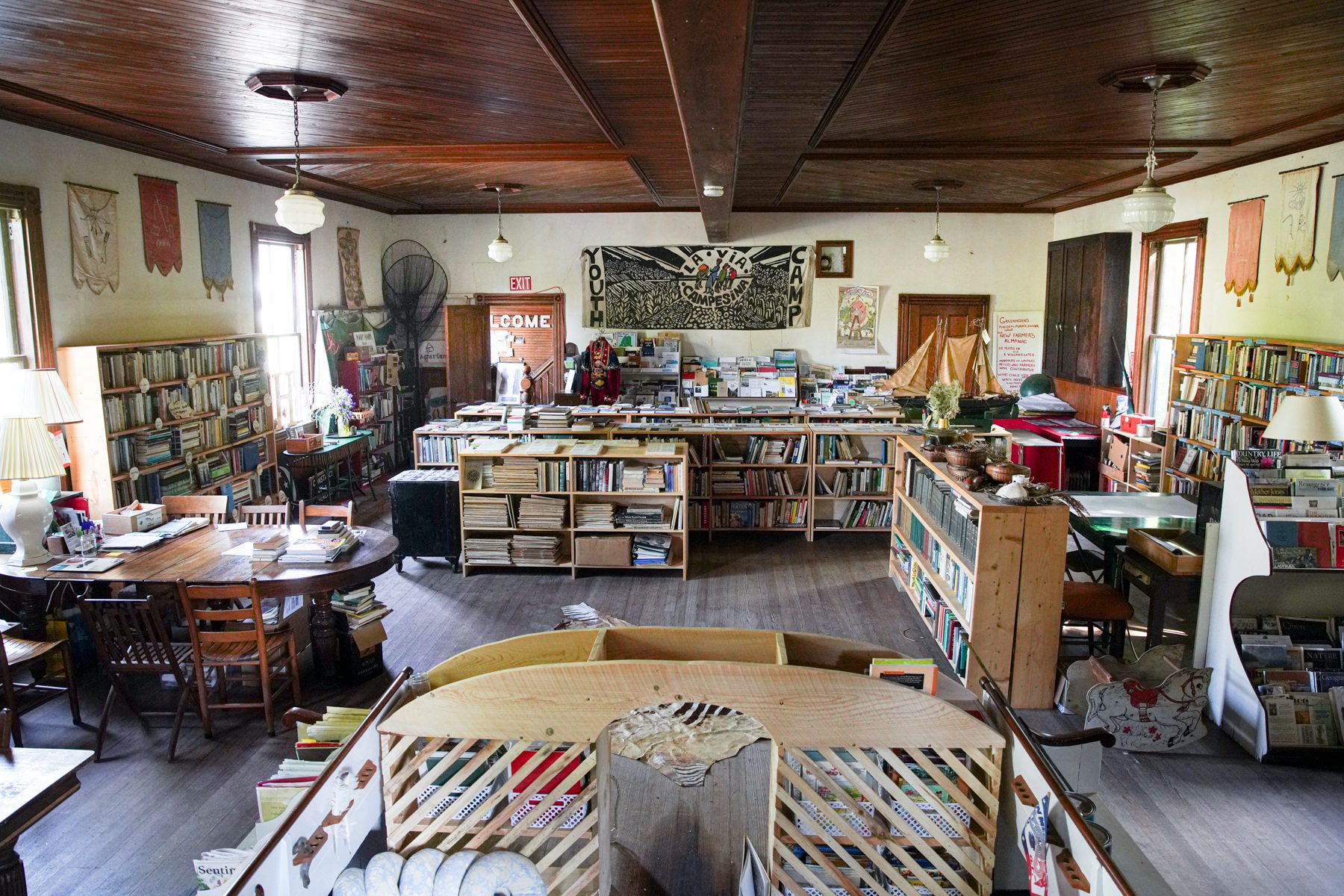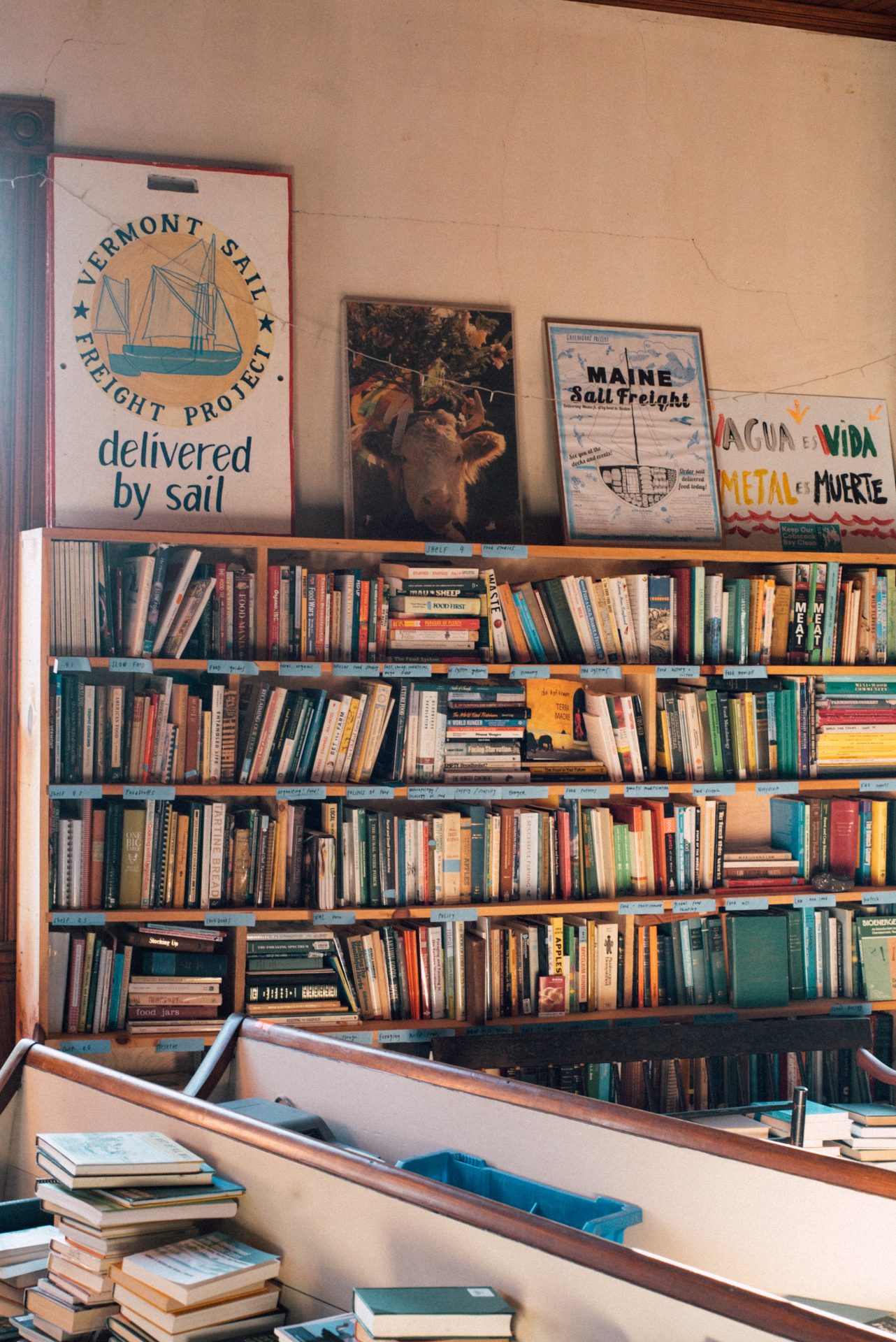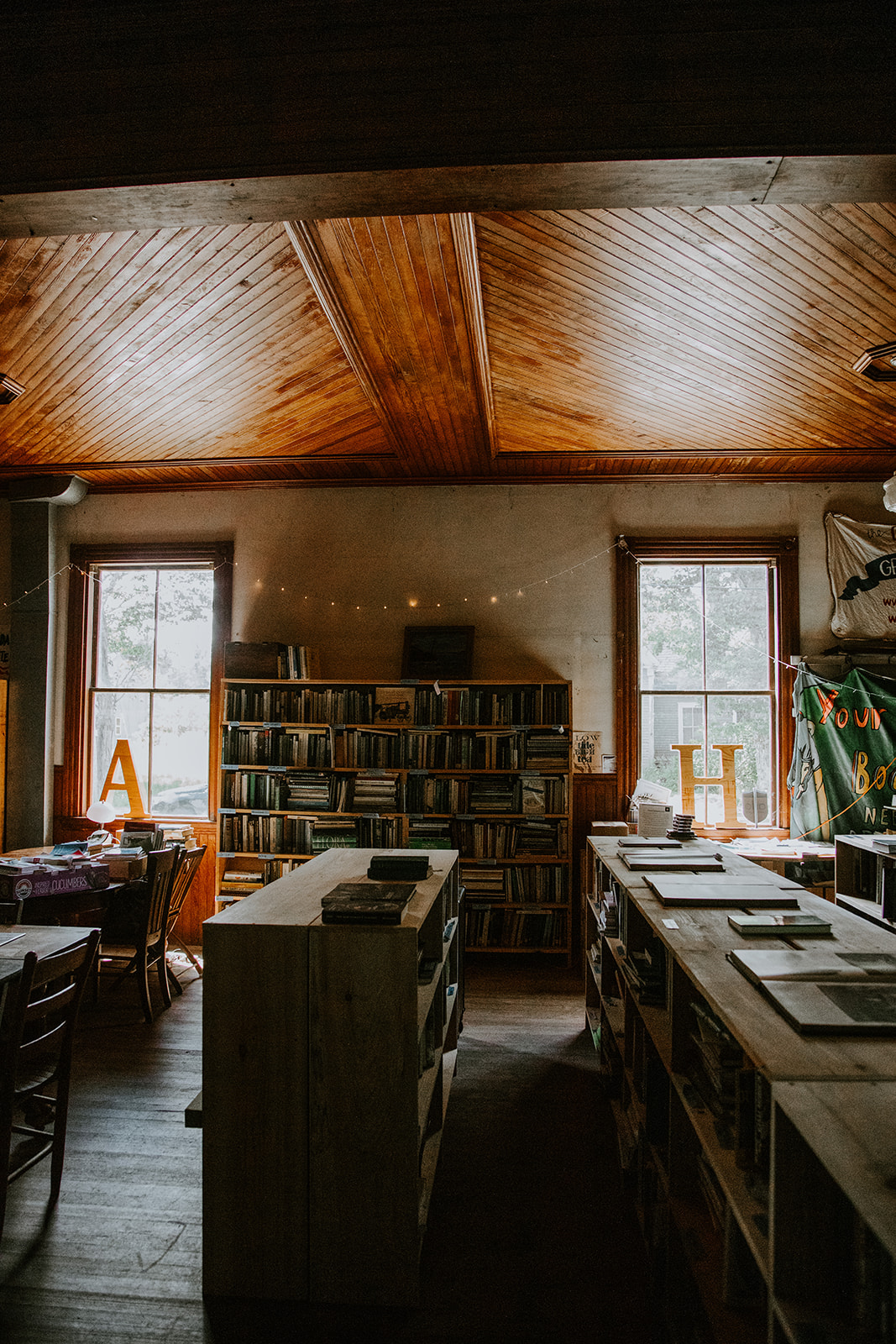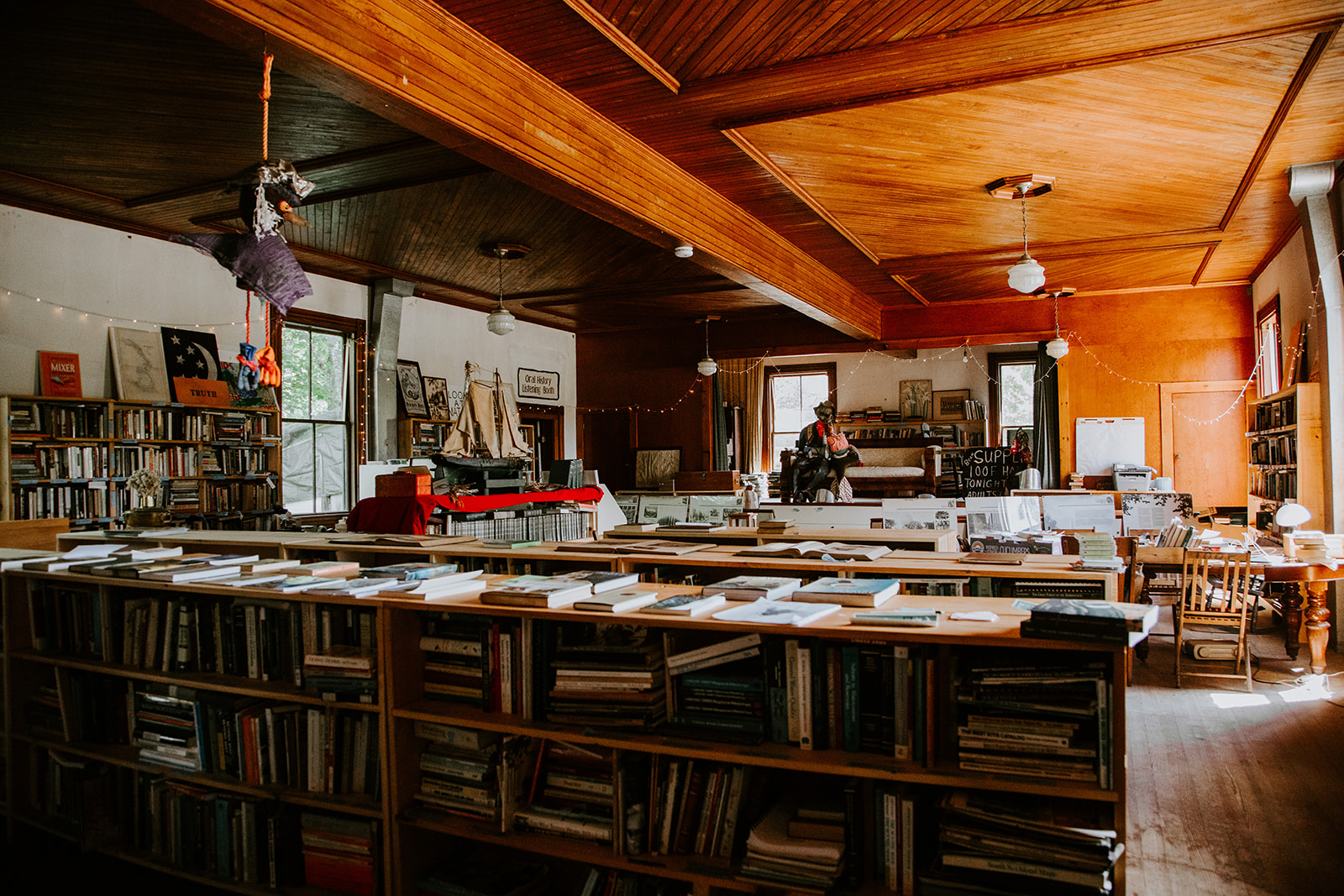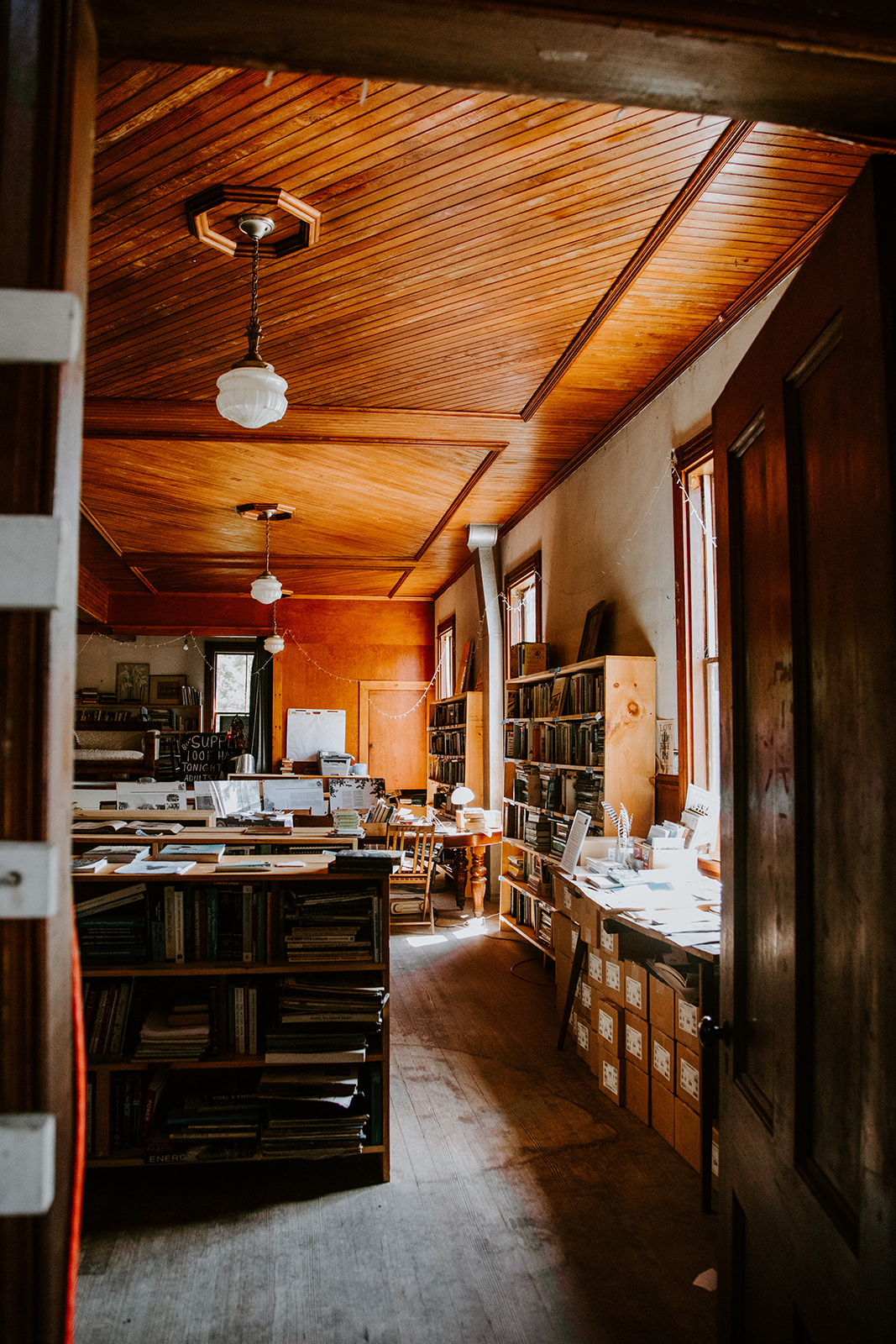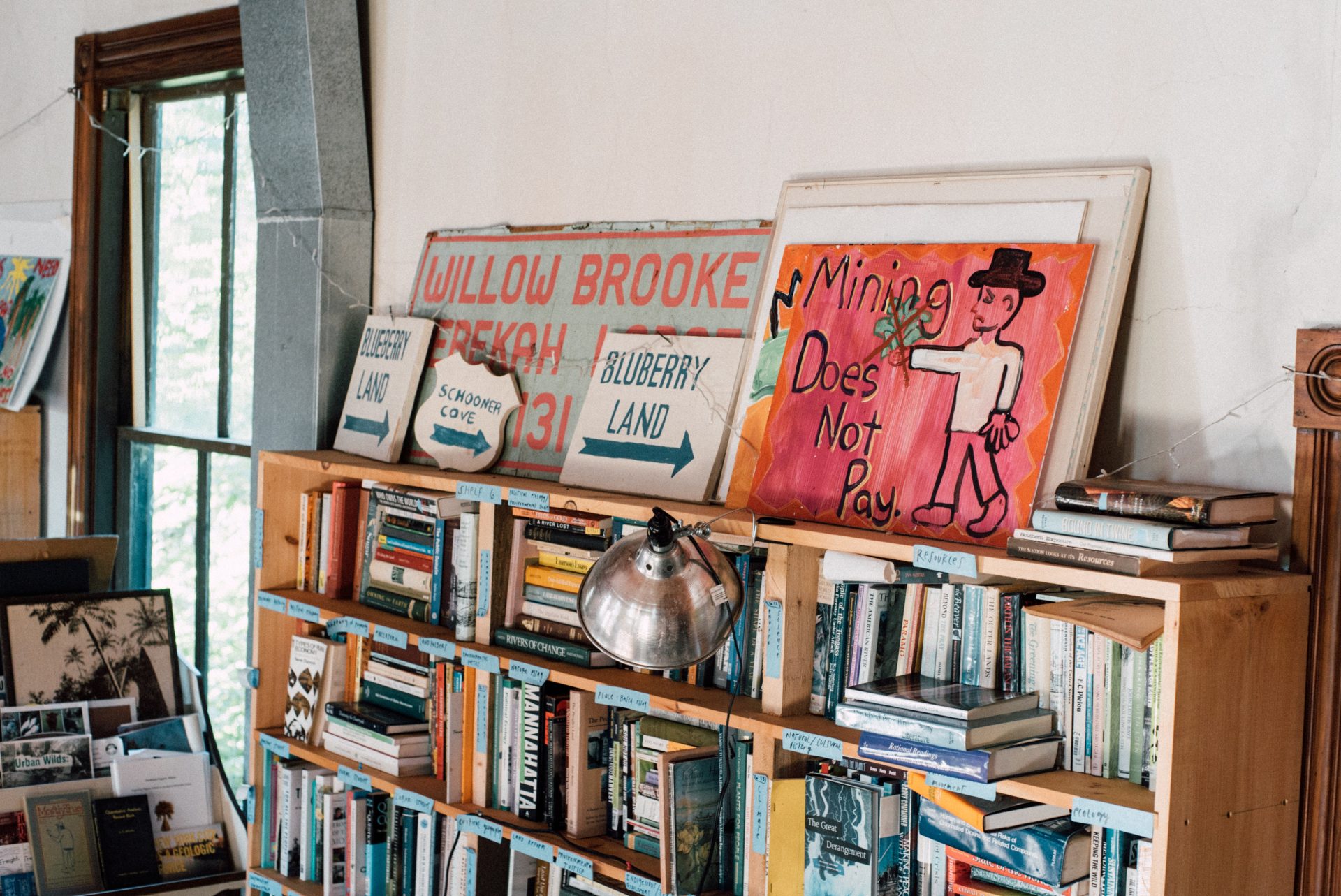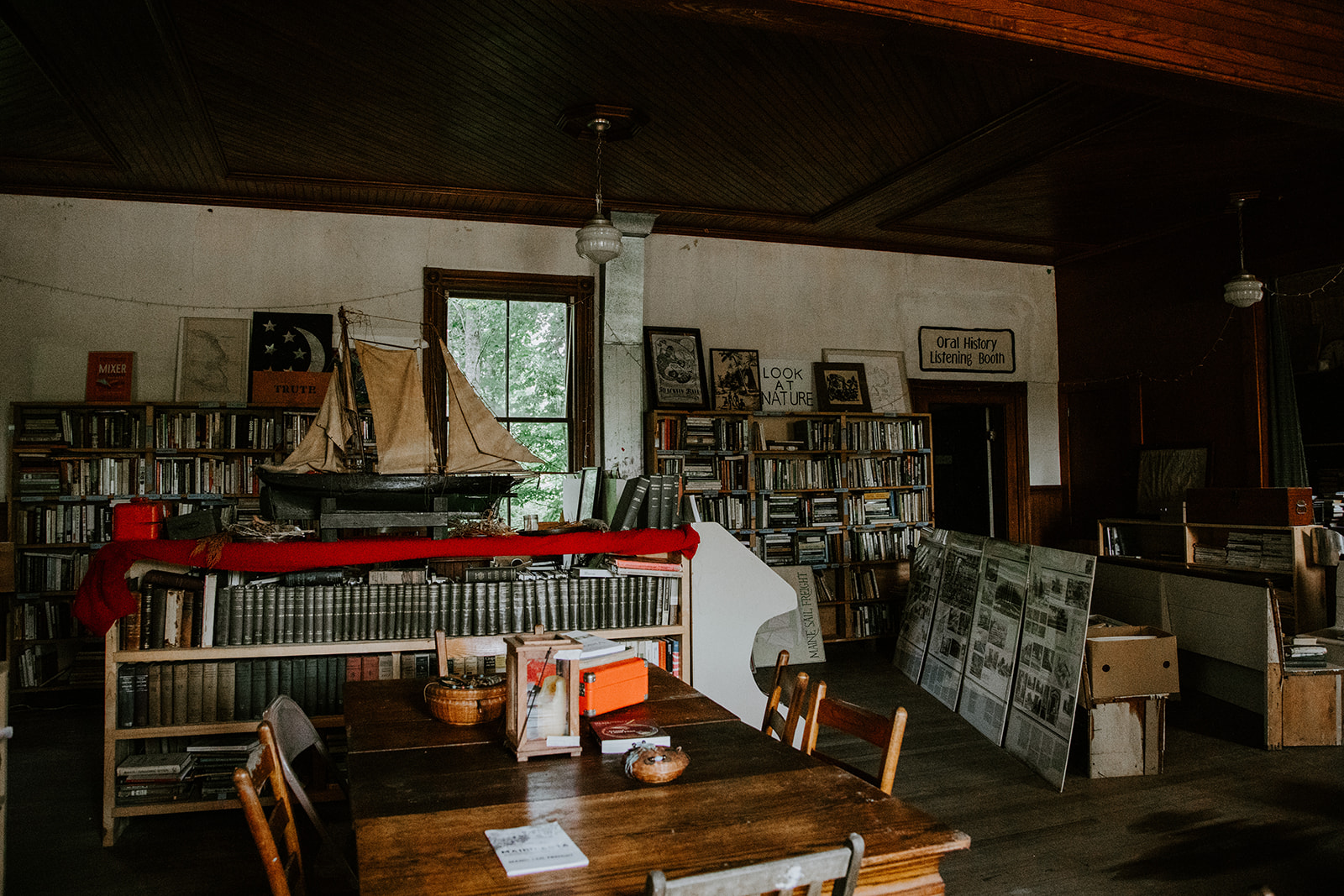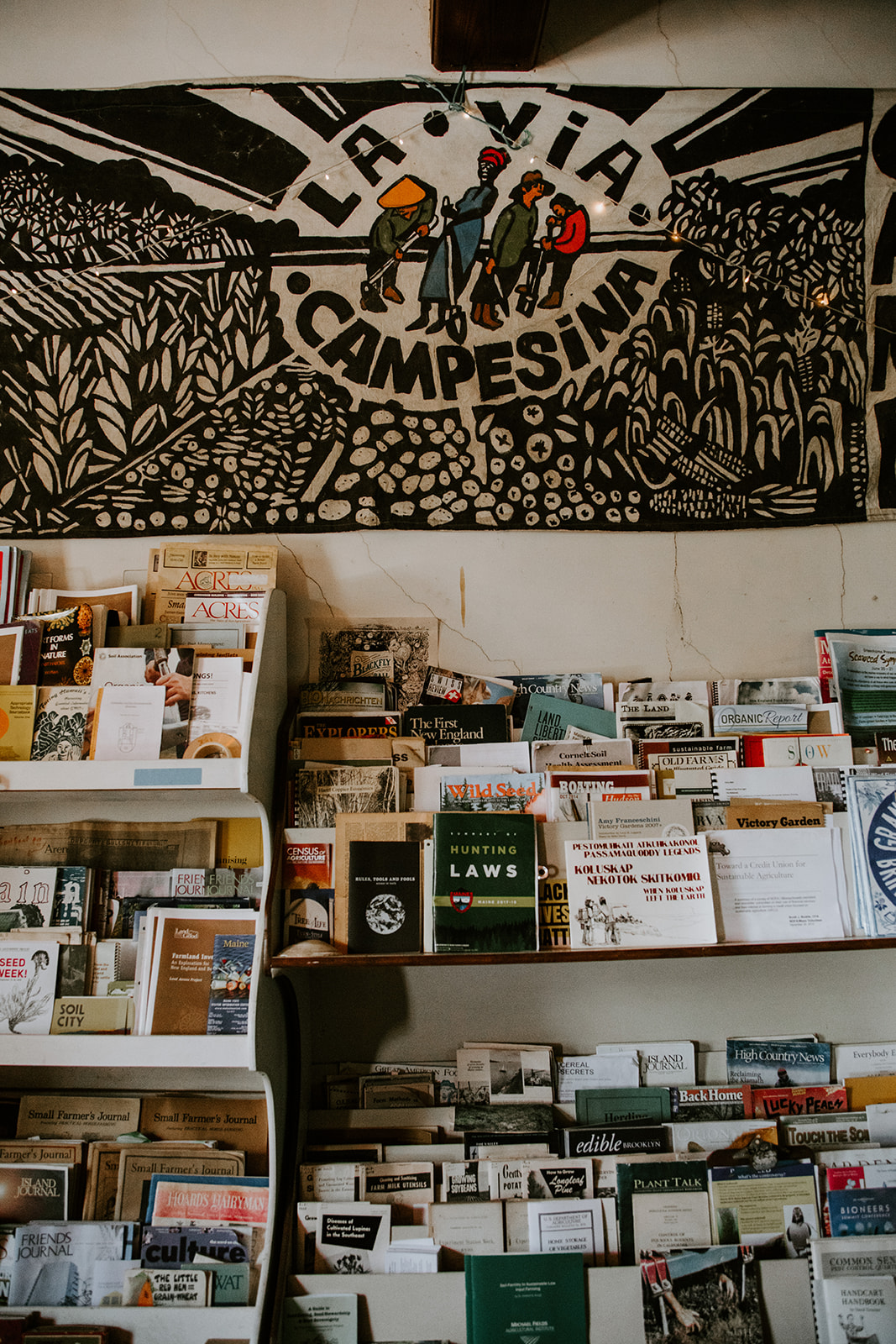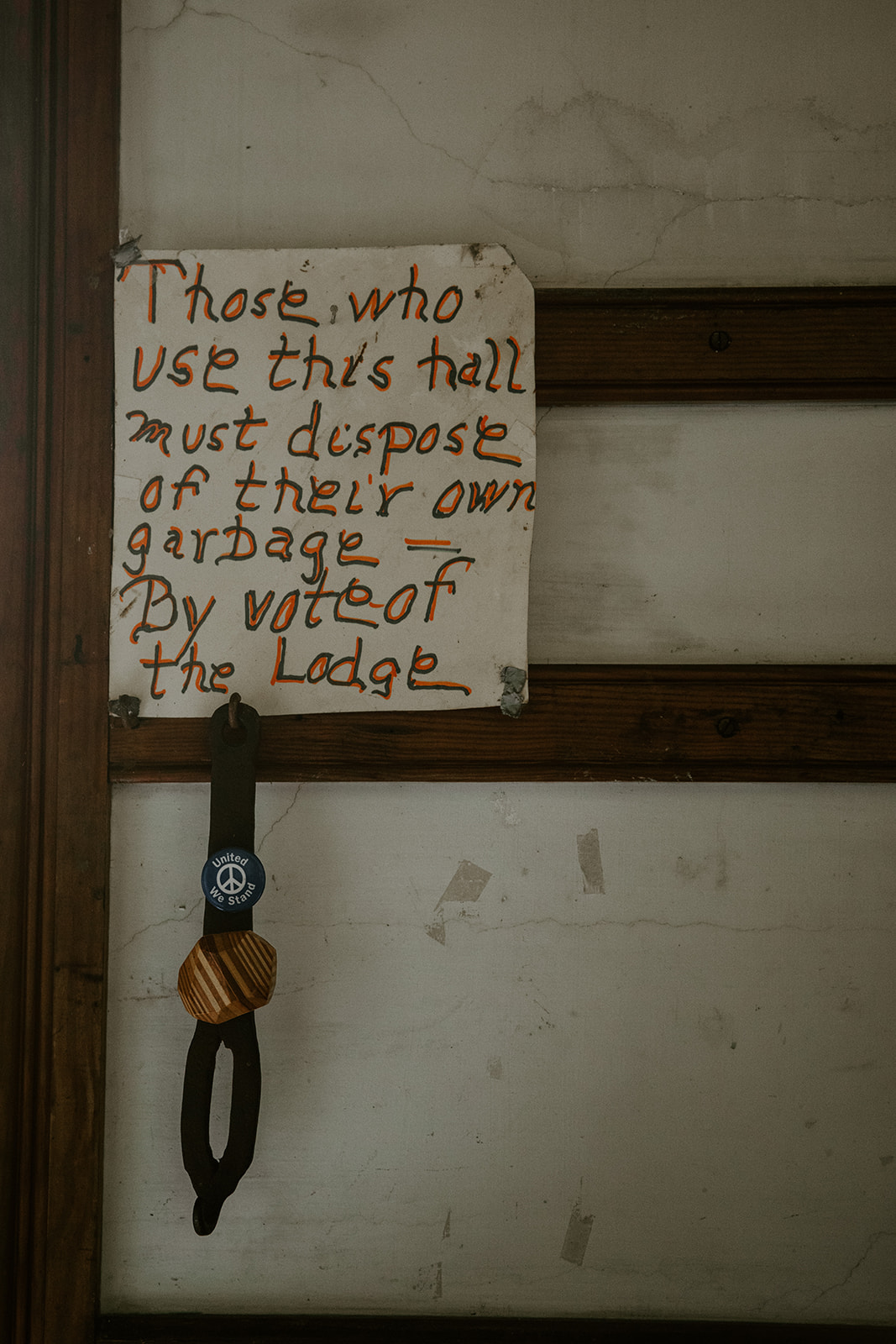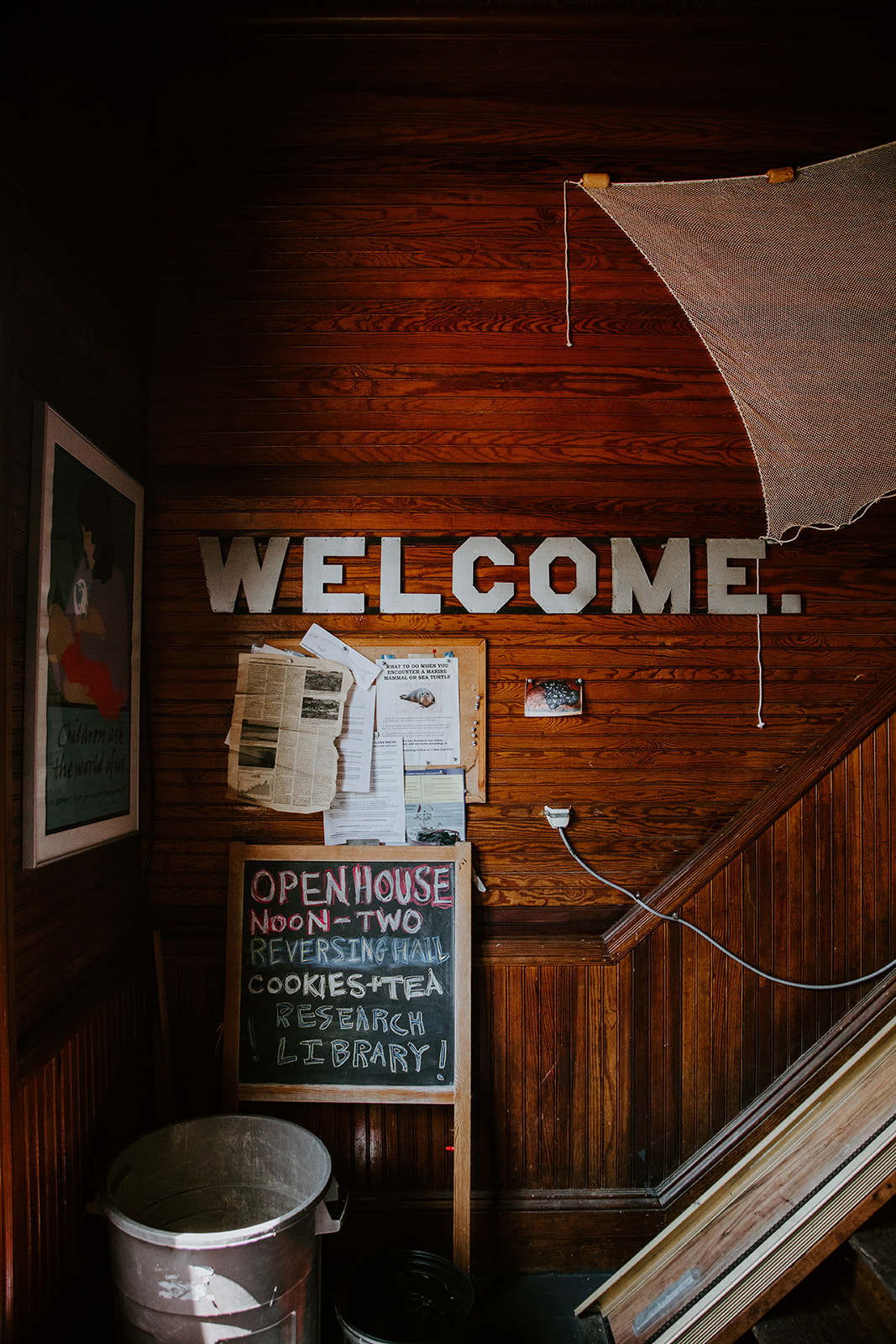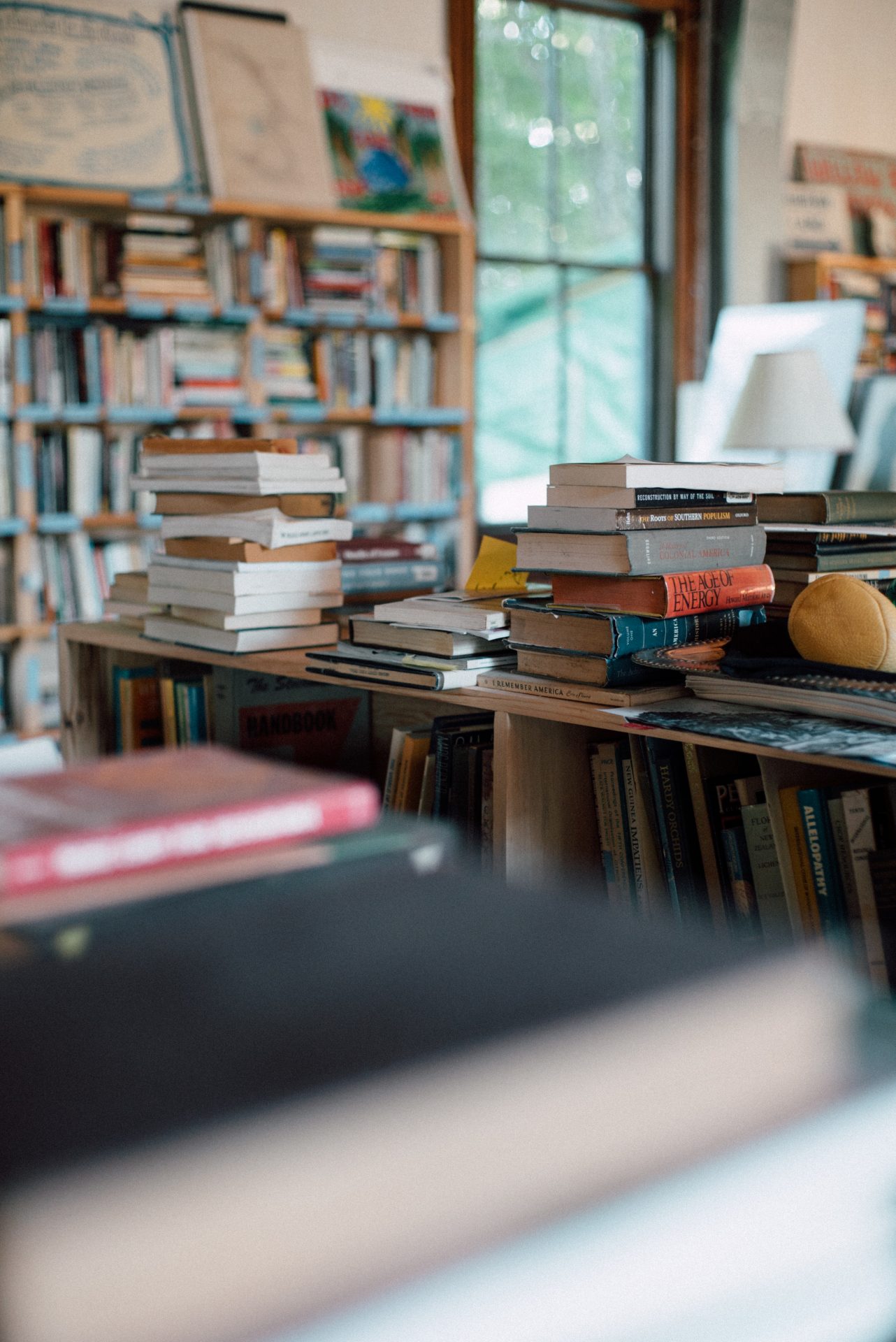the Greenhorns AGRARIAN LIBRARY
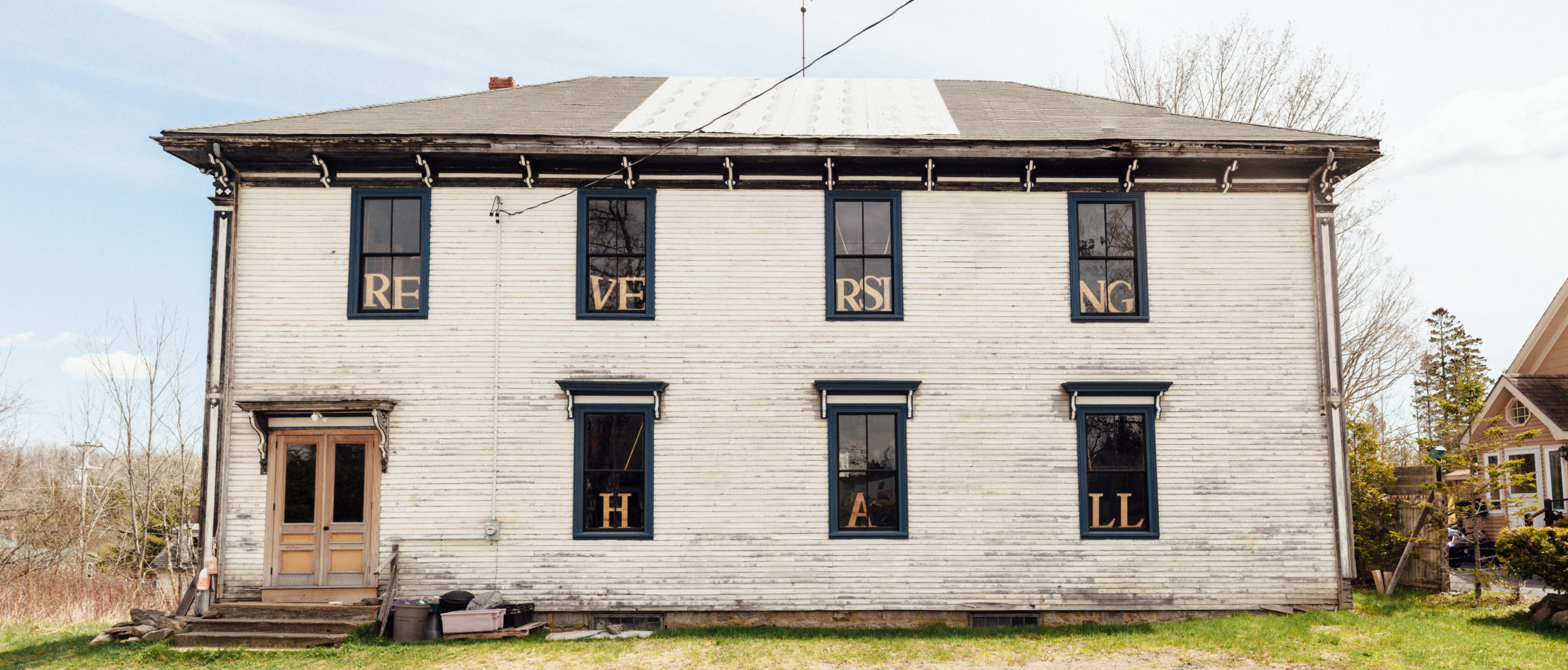
ABOUT THE LIBRARY
2025 Update
REGULAR HOURS
The Agrarian Library represents 20 years of collecting; it centers and archives agrarian material culture, and includes books from many disciplines.
In 2023, library staff worked to update our online catalog so it is more navigable and easier for farmers and researchers to browse our collection from a distance. Visit the new ‘online catalog’ of our collection.
You can now easily search through sub-collections that are of most interest to you such as Food Studies, Marine, or Political Ecology.
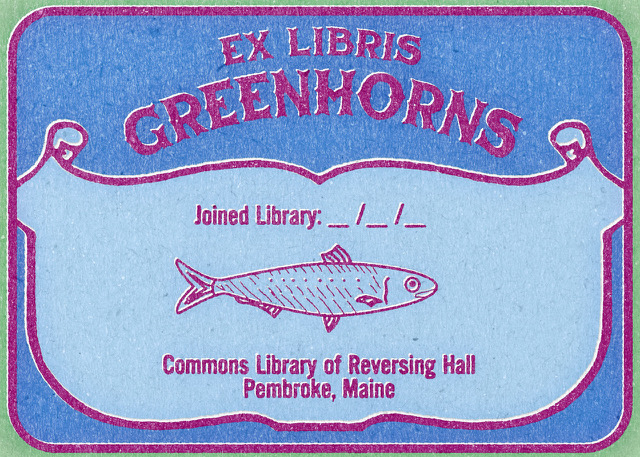
You can read a digital copy of our printed "Library Guide" created by Patrick Kiley of Publication Studio. This helps interpret the use/history of this collection.
The library is housed on the ground floor of the historic “Washington Lodge”, an Odd Fellows Hall built in 1896, designed by architect Nathan Foster. The hall is protected by an easement with Maine Preservation, which had listed it as ‘critically endangered’ in 2017. So far the building has received new windows, new outward facing front door and steps, a new roof, emergency lighting and exit signs, new exterior paint, updated wiring and repair to bulkhead/ground floor egress. Next on the list is 2nd floor egress, soffit/gutter repair, improved lighting in the theater and exterior, and updated historically-correct front porch with bigger landing.
As with many civic buildings in Downeast Maine, our restoration efforts are delayed by a critical shortage of restoration-oriented builders (see the Maine Civic Halls Initiative).
As the fulcrum of our cultural project, we have named this building Reversing Hall, in honor of the tidal falls at the end of our peninsula. The Reversing Falls boil at mid-tide with 13 acres of whitewater, surging, swirling and vortexing, a great place for eagles and seals, and of course the subtidal seaweeds. The Passamaquoddy word Kapskuk, gives us the name for Cobscook Bay—our beloved home—in the northeasternmost corner of the USA, adjoining Passamaquoddy Bay (and homeland) and the Bay of Fundy.
The Agrarian Library and study area is housed on the bottom floor with an ample reading room, sofa, tables, lamps, kitchen, high-speed wifi, and printer/scanner. On the top floor we host our summer workshops, trainings, dance parties, and film screenings using the beautiful red velvet sofas leftover from the Odd Fellows who ceased their use of the hall in 2007.
In 2025 look out for the “Hall to Hall” tour of civic architecture in Downeast Maine, connecting and celebrating the social history of these beautiful buildings. The “Hall to Hall” tour will consist of a printed brochure and a series of pop-up exhibits. This follows in our habit of touring exhibition projects, like the 2017 project “Grange Future,” which traced the politics, songs, economic legacy, and cultural fabric of the Grange Movement in the United States; or the 2019 OUR LAND: Acequia Commons; or the 2020 Earthlife exhibition.
Mission
The Greenhorns Agrarian Library contains approximately 9,000 catalogued volumes. The project aims to enable historical exploration and contemporary cultural production. As such, the library safeguards agricultural materials and provides tools for land-based and self-directed learning. As a system for circulating materials—books, ideas, conversations, and projects—the library provides the opportunity for unconventional learning paths.
We hope you will feel welcome to visit and join us in this collective project of making a future together.
More about the books
The library was created by Severine von Tscharner Welcome over the past 20 years and includes a significant collection from Ag-Access, a wonderful publisher of alternative agriculture, agroforestry, and low-input / appropriate technology titles, some of which we also sell. We have the entire USDA collection from Minnesota, various periodicals and donations from friends and allies – (big thanks to Nicole Vitello for a complete bound set of Growing for Market.) We have also been gifted collections of The Natural Farmer, Home Power, Mother Earth News, and Small Farmers Journal, among others. We thank Donna Kausen for her collection, and Charlie McQuarie for his help navigating the archival listservs for great textbooks, thrift stores and library sales and beloved used book stores across the US, and right here in Washington county with spontaneous donations and wonderful book sales. We thank Red Tomato distribution company for their donation of an amazing collection on farmer co-ops and packing houses, and a canon of early organic materials.
Many of the books are out of copyright — and thus a source of imagery for our ongoing literary journal called The New Farmer's Almanac.
We focus on topics of interest to beginning farmers: agroecology, frontier studies, geography, land studies, history of settlement, trade history, marine ecology, organic horticulture and practical farm books of all kinds, herbalism/wildcrafting/foraging, cook-books, regional and provincial histories, rural fiction and non-fiction, agriculturally themed children’s books, agrarian political economy, American rural history, seaweed and marine studies, female protagonist fiction, female author non-fiction, liberation theology, land reform, science/speculative fiction, atlases and exploration, water politics, architecture/DIY/home energy.
In addition to books, we also have a large collection of documentary films on agricultural topics.
We welcome you to make an appointment to spend a day in the collection.
New arrivals to the library
Our ears are perked up for volunteers, librarians in training, and dusty book collections looking to be involved. Thanks to a grant from the Stephen and Tabitha King Foundation we are able to hire someone to help the library open more frequently and to write more grants. Stay tuned and stay curious—become a member!
We also accept donations of ephemera (magazines, maps, newspapers) and movies of agrarian significance. All donations are tax deductible. Email office(at)greenhorns.org for more information.

